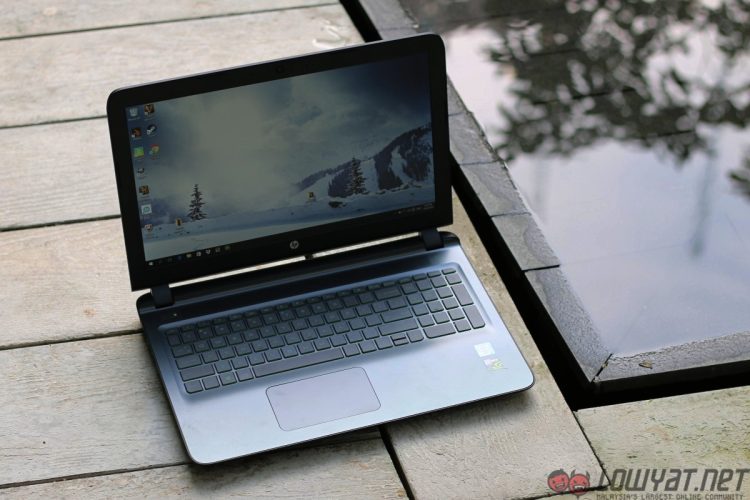HP’s new budget gaming notebook took a bit of getting used to. It is a far cry from the ultra-sleek and over-engineered stylings of most gaming laptops that we’re used to seeing these days, nor does it share the slim profile of modern Ultrabooks and some other gaming laptops either. In fact, this looks nothing like a laptop that suggests it is meant for gaming – which, depending on who you are, may be a good or bad thing.
Specifications
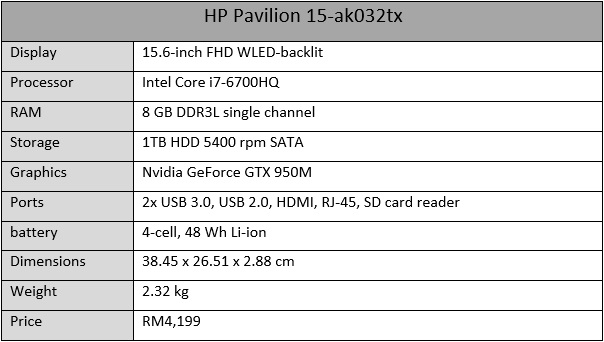
Design
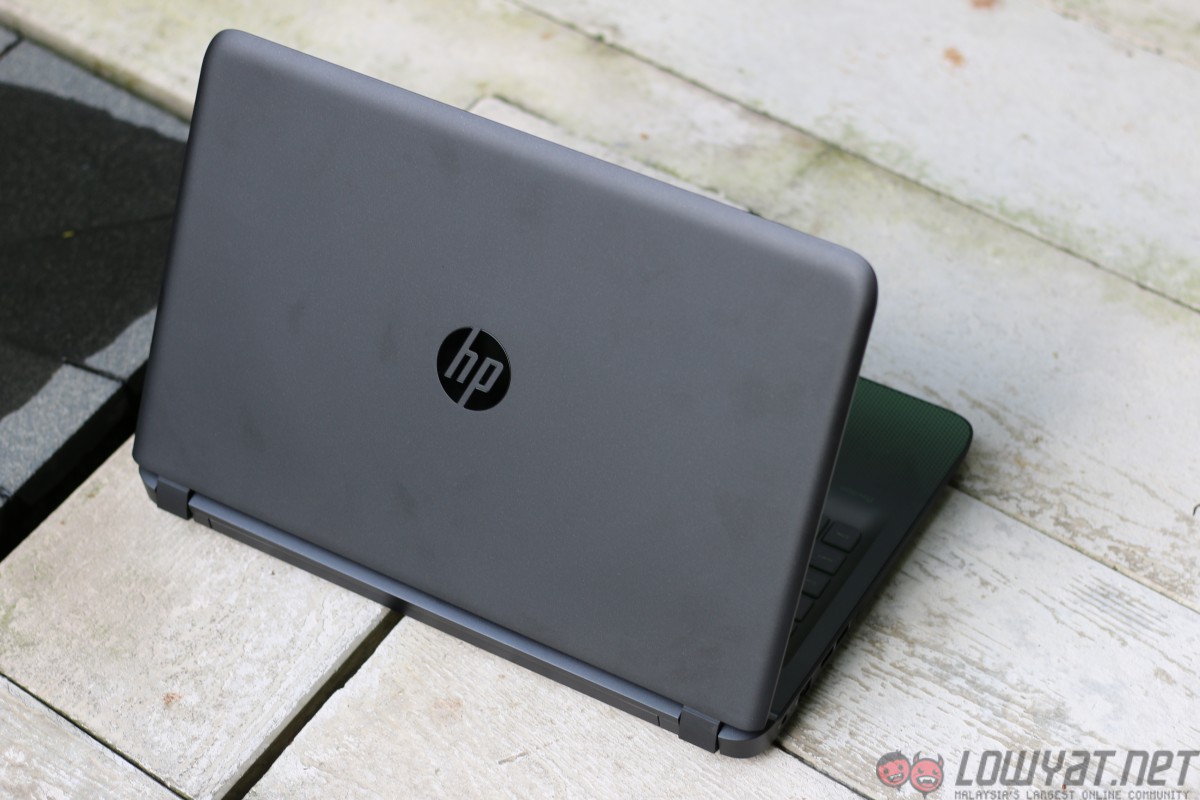
As far as designs go, the HP Pavilion 15 is entirely uninspired. It isn’t so much that it looks bad, but it is just…boring. The subtle green accents do little to alleviate this, and has the unfortunate consequence of being compared to a certain premium gaming company. The plastic chassis feels cheap and creaky; providing absolutely no confidence in its ability to absorb impact. This is especially evident with the hinges which will almost certainly give out long before anything else on the laptop needs replacing.
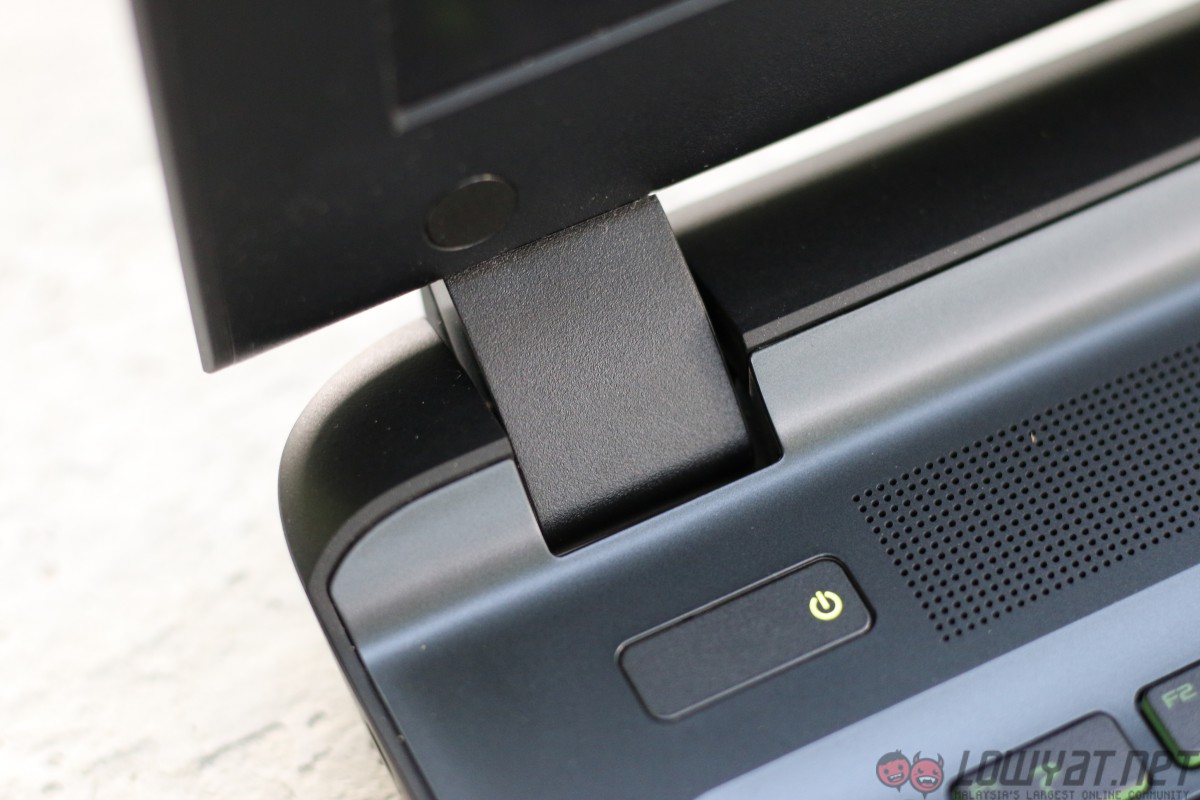
The location of the exhaust vent on the right side of the laptop presents an interesting problem. This results in heat being vented directly at where most people would have their mouse. The problem isn’t quite a noticeable when the user is typing although it turns up when the GTX 950M kicks in. Thankfully, the low powered GPU doesn’t get that hot; and the lukewarm air only represents a mild annoyance.
Despite these shortcomings, the HP Pavilion is surprisingly comfortable to use. While it is entirely bland to look at, the design does what it needs to do. This won’t be turning heads, but you will be able to sit down and hammer on with it for a fair few hours playing games, or just watching YouTube or surfing in Chrome. The keyboard in particular provides just the right amount of tactile feedback without feeling soft or flimsy; I suspect that’s mainly due to how thick the whole laptop is.
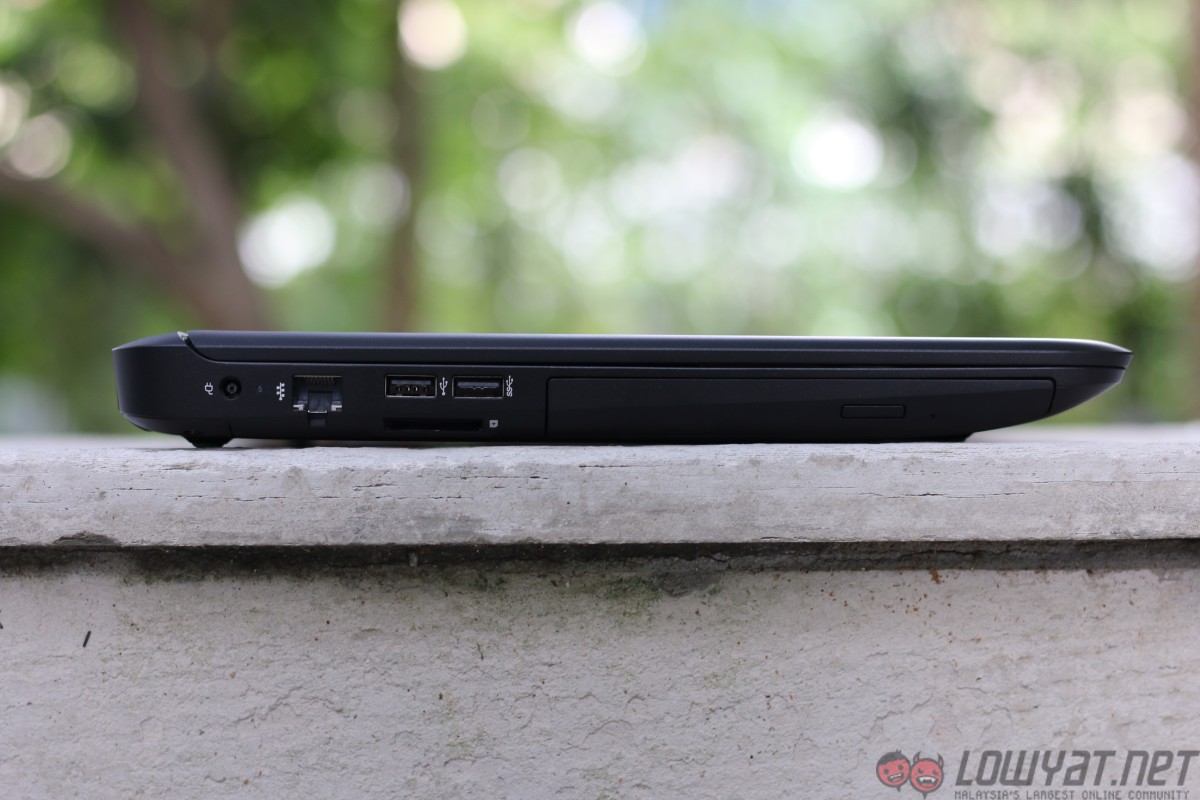
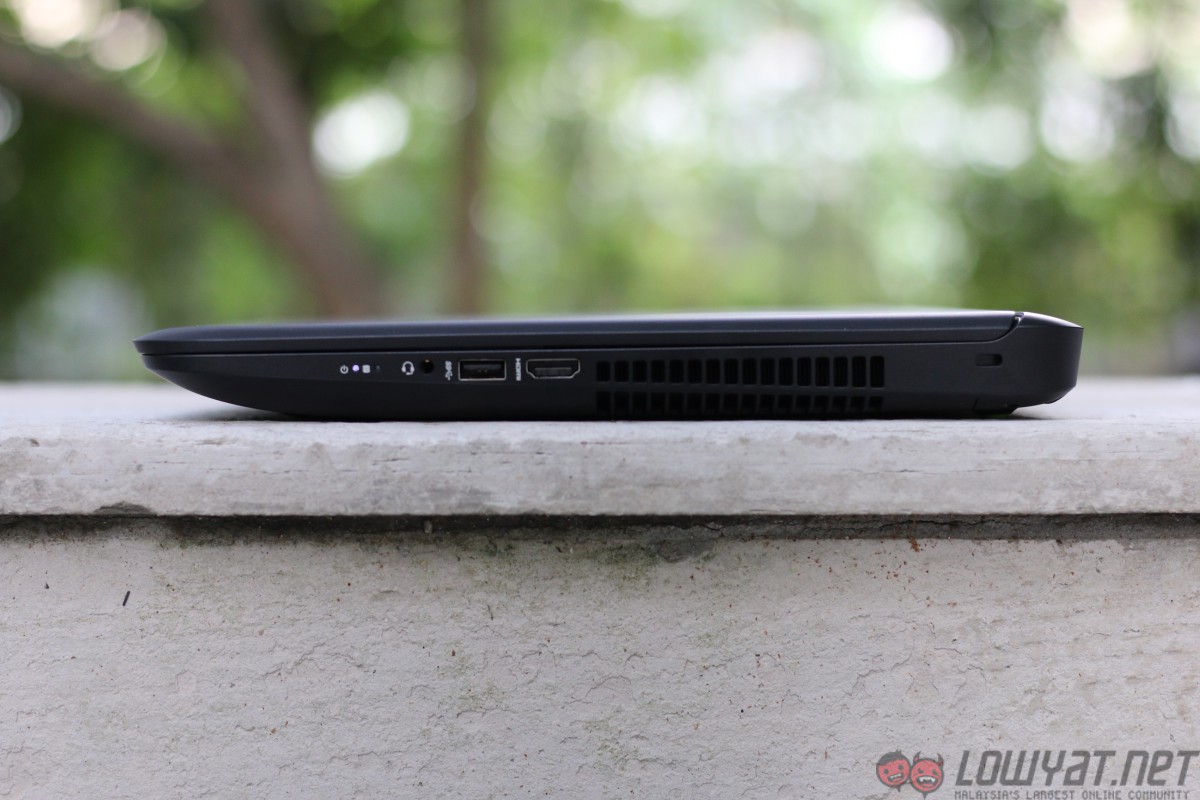
HP has also taken some bold design choices with the Pavilion 15. It begins with the inclusion of an optical drive; a rarity in this day and age. The drive adds some amount of thickness to the Pavilion, although HP has perhaps given it too much space which results in some occasional unsettling rattling.
If the optical drive isn’t enough of a throwback to another age, the removable battery certainly is; few laptops – even the budget ones – today have this feature. Combined, these two features make the Pavilion 15 feel like it was designed in the year 2010.
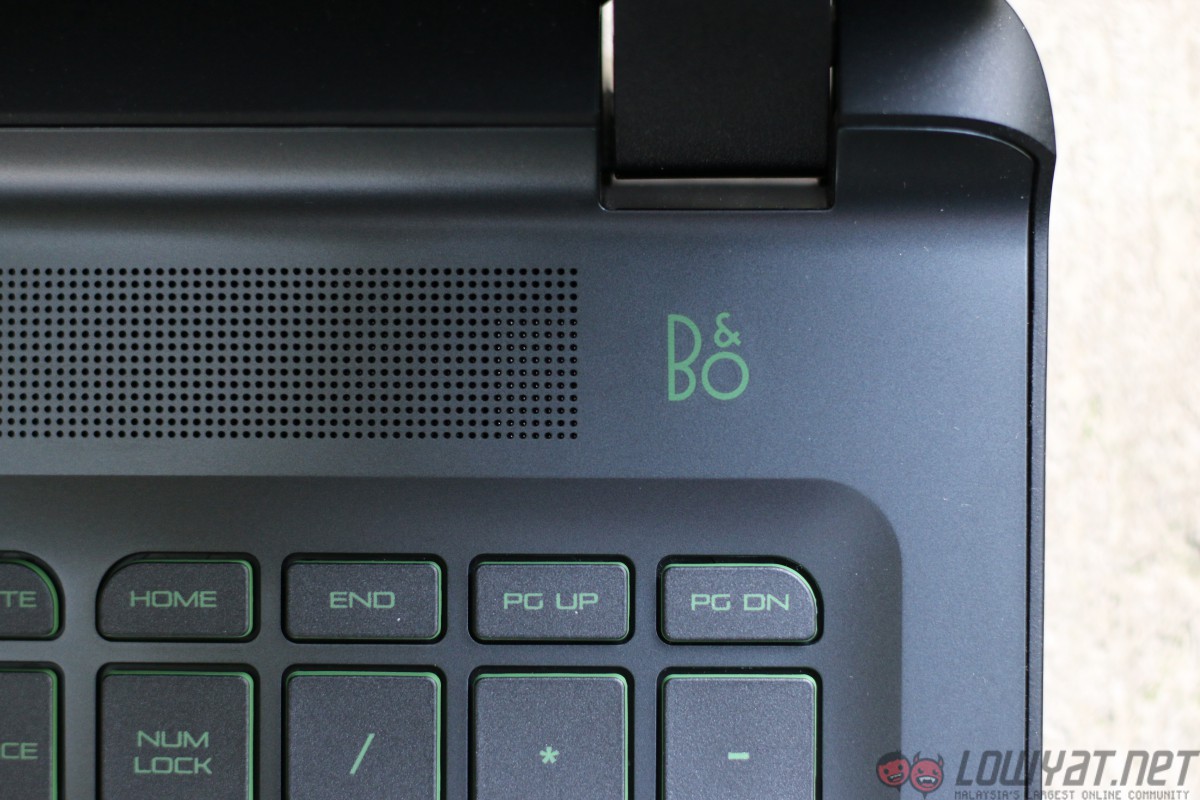
The Bang & Olufsen speakers are placed just above the keyboard, allowing audio to be directed right at the user. This makes for more consistent audio quality overall as the sound doesn’t need a surface to bounce off. However, it also results in some weaker low frequencies as the bass is lost to the surrounding atmosphere. The HP Pavilion 15 is not the first laptop to use this configuration, and it certainly won’t be the last.
Performance
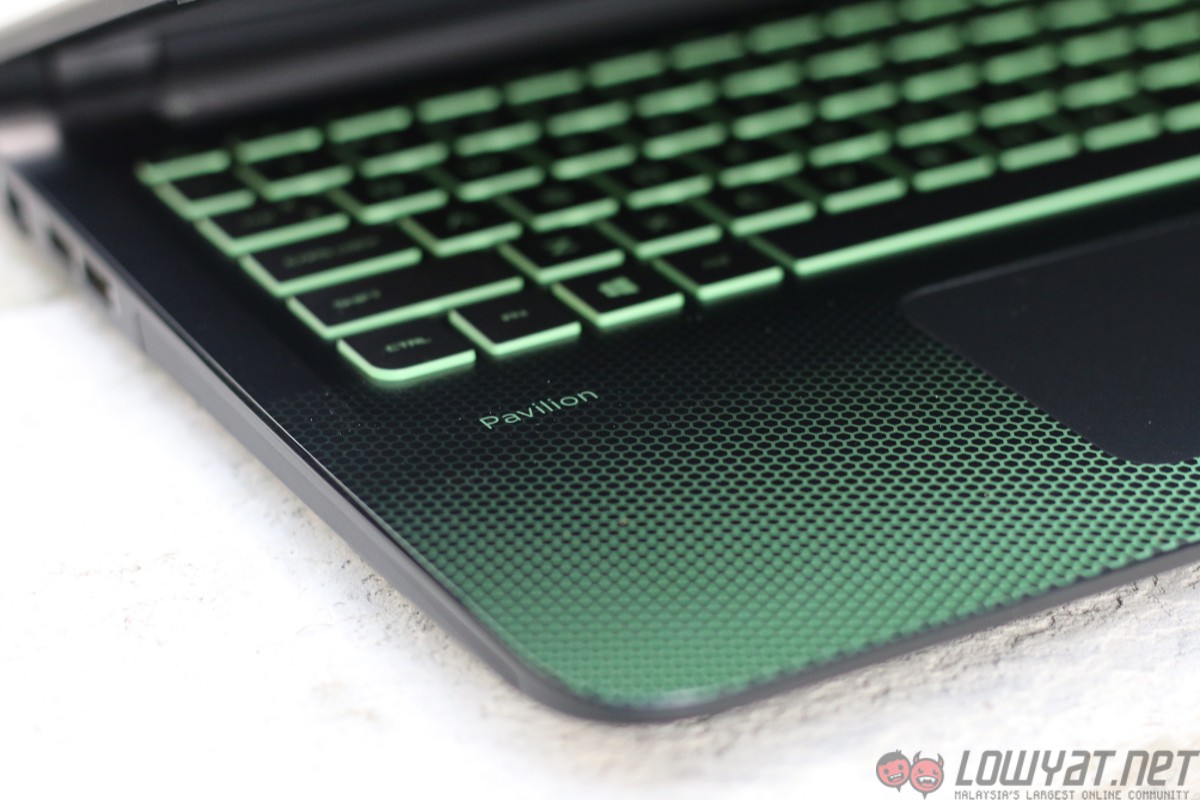
The HP Pavilion 15 has an odd mixture of internals. The Intel Core i7-6700HQ is a good, high-end processor and used in many gaming laptops more expensive than this one, which gives it a solid CPU score in the benchmarks. However, it is combined with hardware that looks more at home on enterprise grade notebooks instead of a gaming laptop.
The stock 8GB RAM is about the bare minimum needed to run any computer smoothly in this day and age; although some manufacturers still ship theirs with 4GB. In a way, this is a solid argument in favour of the Pavilion 15; but it feels somewhat lacklustre considering the kind of competition that it comes up against in its chosen market. Still, 8GB is not entirely terrible and provides the necessary memory for what I believe is meant to be used for more casual games.
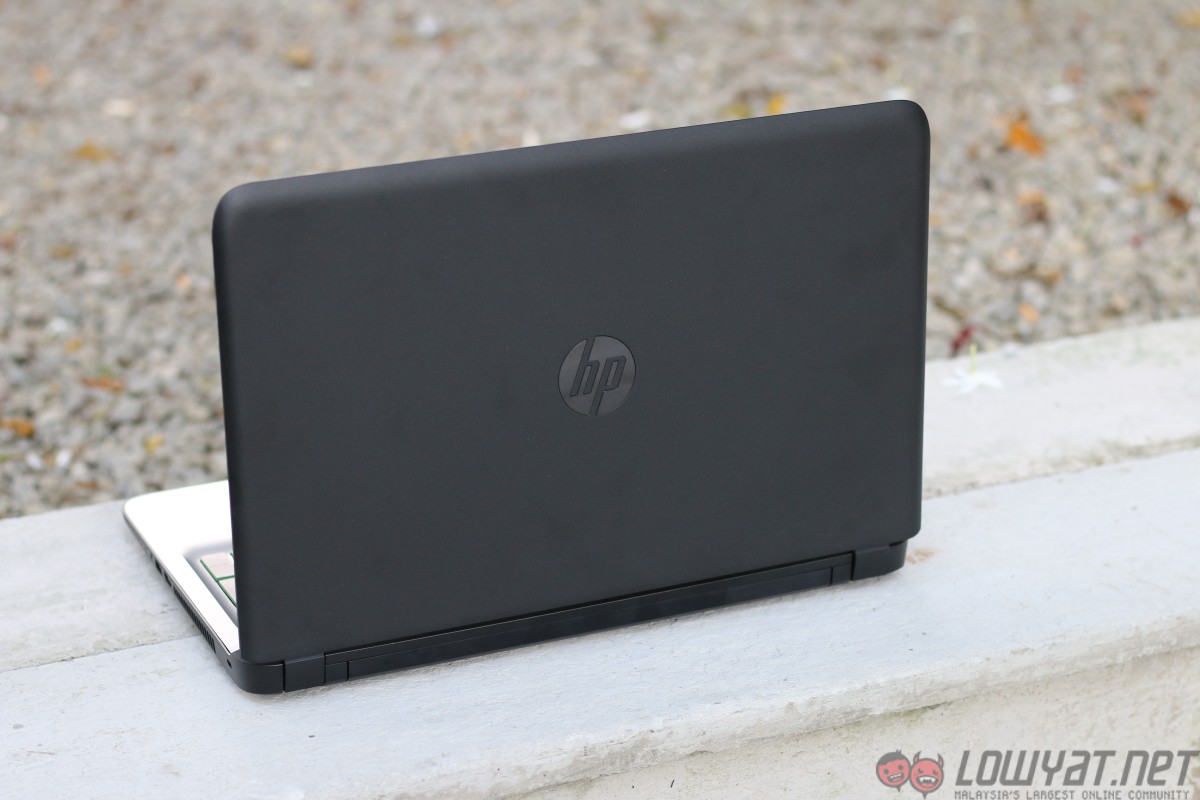
The 1TB 5400rpm HDD looks like it belongs in a computer destined for work on spreadsheets – yet the HP Pavilion 15 is not the only gaming laptop to feature one. While the amount of storage isn’t a problem, the speed of the HDD will result in longer loading times. Not exactly something gamers want to deal with; considering the increasing size of games these days. At RM4,199, HP should at least consider adding a hybrid hard drive.
Where the Pavilion 15 disappoints as a gaming notebook is the inclusion of a GTX 950M. While the Nvidia GPU provides solid performance, it isn’t quite enough to propel this laptop into the gaming category. The benchmarks certainly agree with this assessment, as the scores are something that would be impressive three years ago. That said, a three-year old gaming laptop would probably be cheaper at this point.
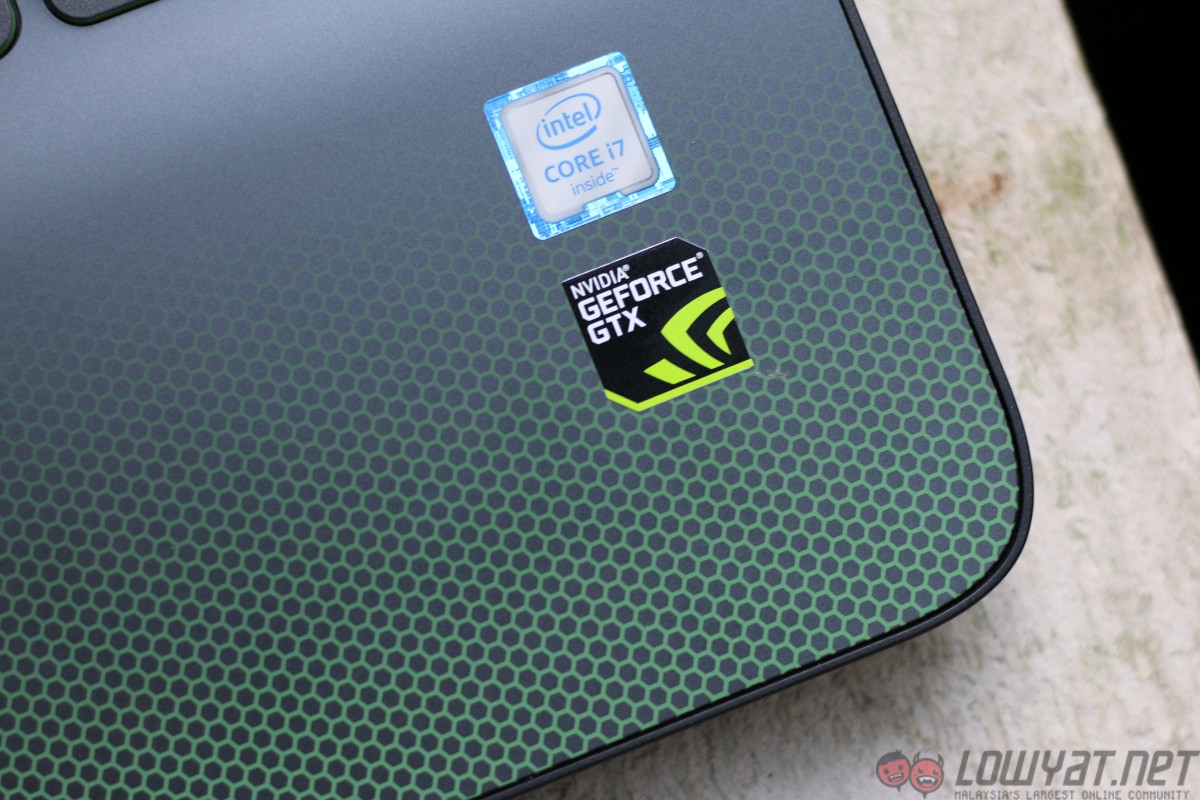
An assessment of the Pavilion 15’s capabilities based on hardware specifications and benchmarks are only half of the story. In real world performance the laptop still provides a better experience than one would expect. No, it won’t run Crysis 3 or Battlefield 4 at any reasonable setting; but you get what you pay for. Interestingly, it still managed to run Grid 2 at a solid 60 fps; although I will have to admit that Grid has not been the most resource intensive for a very long time.
In fact, I think this laptop would be perfect for those playing catch-up with their Steam library. Plenty of games still run on older engines and have reduced graphics; while modern games have also slowed down on how much resources they require – as long as you’re not planning on playing something like Fallout 4. The HDD might make loading times a little long, but patience is a virtue. Titles like Borderlands 2, Fallout: New Vegas, Pillars of Eternity, and Diablo III offer plenty of replayability and are still extremely entertaining. In other words, the Pavilion 15 is not too bad in the real world, just don’t expect too much out of it.
Benchmarks




Battery Life
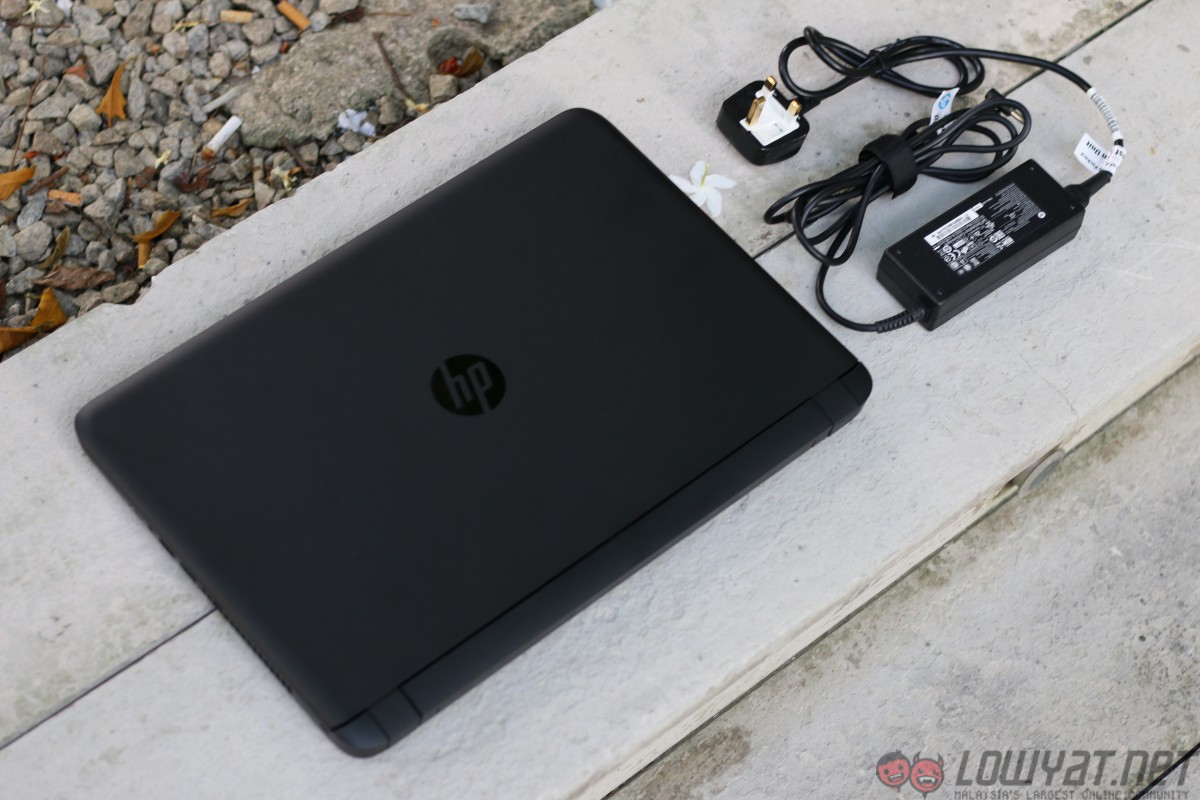
Battery life varied greatly over the course of the review. Our movie loop test managed to go on for about five and a half hours, while the high performance benchmark came in at closer to two and a half hours of power. This is likely more to do with Intel’s power management setting; which is honestly quite impressive. As is the case, real world usage will likely fall somewhere between the two numbers.
Competition
Dell Inspiron 15 7000 – RM4,499
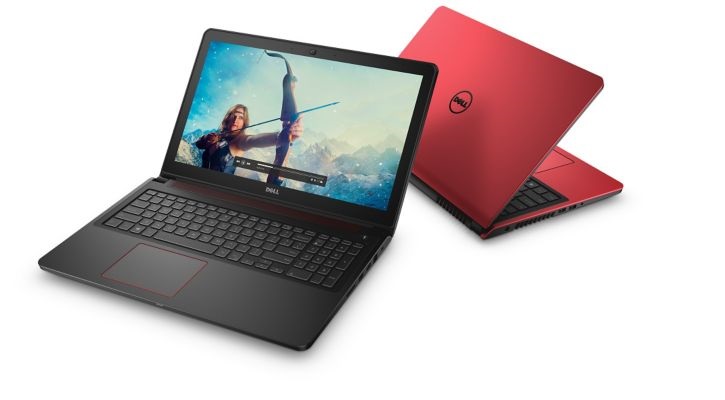
The Dell Inspiron 15 7000 series isn’t classified as a gaming laptop; but it has specifications that match up against the HP Pavilion 15 very closely. Both share the same processor, storage options, and RAM. However, the Dell packs an Nvidia GTX 960M instead, giving it a slight edge in terms of graphics power. All it had to give up was the optical drive; which most gamers will rarely – if ever – need to use. The Dell also has a slimmer profile with a more solid hinge. Whether this is worth an extra RM300 is completely up to the buyer, but I would almost certainly spend a little more in this case.
Acer Aspire V Nitro – RM4,699
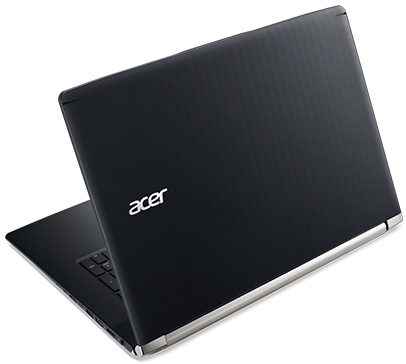
The Acer Aspire V Nitro is another high performance laptop that has a hardware profile similar to that of the HP Pavilion 15. Likewise, it is also a technically a gaming laptop. In this case, the Aspire V Nitro trades 4GB of RAM for a 128GB SSD. It trades performance for a loading times; which isn’t quite something I pay an extra RM500. Sure, it throws in an Nvidia GTX 960M into the mix; but that isn’t quite enough to make up for the reduced RAM.
HP Pavilion 15-AK031TX – RM3,499
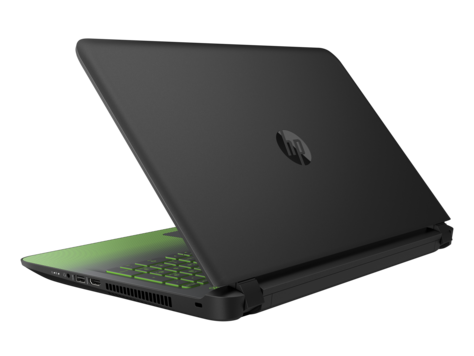
Here’s the deal with budget gaming laptops: ideally, they should not go past that RM4,000 threshold (though that figure itself has gone up over the years). While our review unit with the Core i7 processor costs RM4,199, there is a more affordable variant for just RM3,499.
Sure, it runs on an Intel Core i5-6300HQ processor and has half the RAM at 4GB (both Pavilion 15 models only have 1 RAM slot), but for RM700 less it could be worth considering. You may want to invest in a larger RAM stick and some DIY time, but you’ll still be saving somewhere around RM500 after buying and installing an 8GB stick.
Asus ROG GL552VW – RM3,699
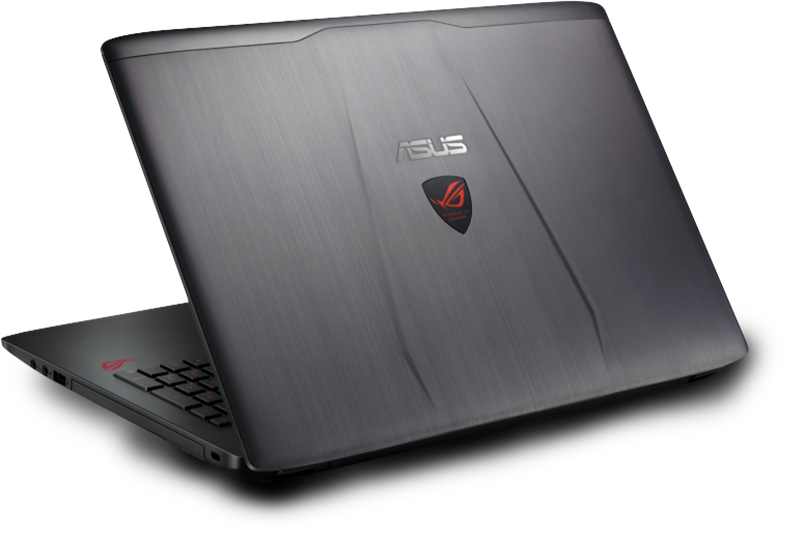
A stylish looking exterior hides a very modest spec sheet. The Asus ROG GL552VW is actually a lot closer in specs to the HP Pavilion 15 gaming laptop than you might think: Intel Core i7-6700HQ processor, 4GB RAM, Nvidia GeForce GTX 950M, 15.6-inch Full HD IPS display, 1TB hard disk, and yes, even an optical drive. Originally priced at RM4,199, it now retails for RM3,699, essentially putting it right in between the two HP Pavilion 15 models. Interestingly, Asus has a variant of this laptop powered by a Core i5-6300HQ as well, but we can’t seem to find any retailers selling it anymore.
Conclusion
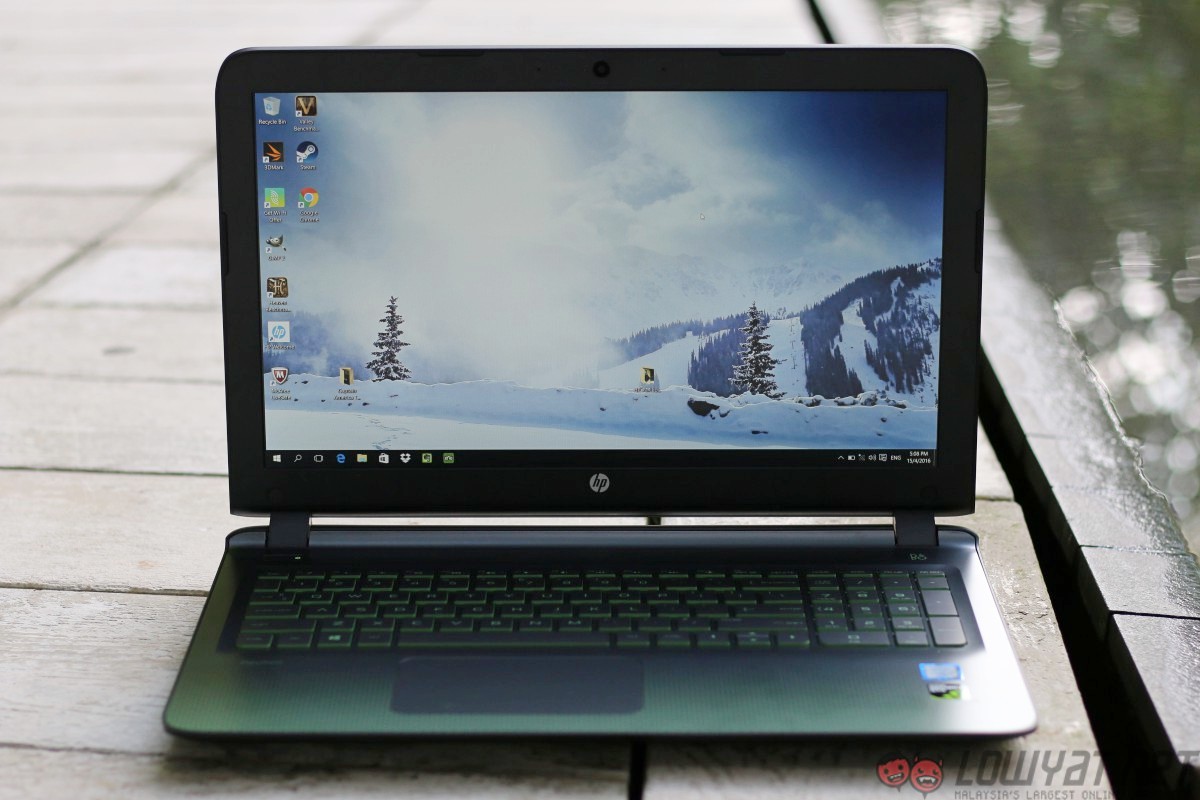
It is honestly difficult to call the HP Pavilion 15 a gaming laptop. It is cheaper than most other gaming laptops, but it lacks the raw power needed to compete with them. It cuts corners in areas we wished it hadn’t: I don’t mind the bland design, but most of this disappointment stems from the fact that this laptop runs on a mid-range Nvidia GeForce 950M GPU.
Despite this, HP’s marketing is determined to push it up against machines that push the limits of what mobile computing is capable of – and more often than not stretch the definition of the word “mobile”.
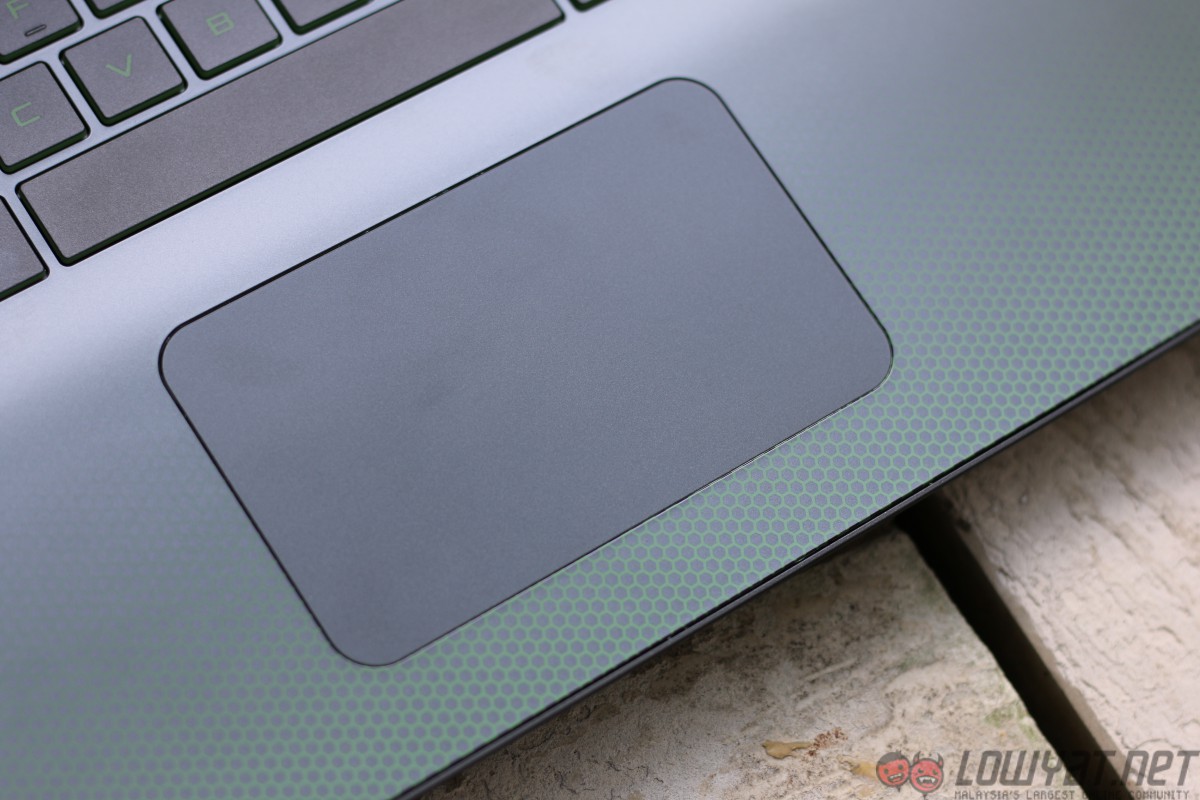
What this laptop is, is a high performance laptop attempting to masquerade as a gaming machine. It can fake some of the requirements well enough, but will collapse under the pressure of more demanding titles. Furthermore, if you want something that can play some games while also being portable enough to carry around – look somewhere else. The poor quality of the plastic casing will not inspire any sort of confidence that it will hold up to constant travel in tight spaces.
Overall, the chassis is awful but hides a somewhat well thought out machine that offers a few decent touches. There would be much less criticism if HP had chosen to categorise this machine as a powerful regular laptop; reviewing a gaming laptop raises the benchmark more than a few notches. What eventually happened here was a mismatch of marketing, expectations, and reality.

